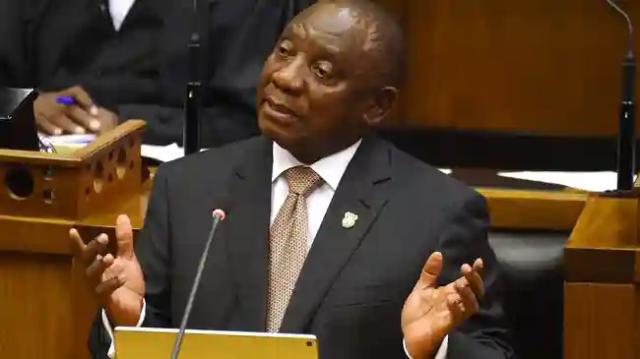Ramaphosa Considered Resigning During State Capture Years

South Africa’s president, Cyril Ramaphosa, said he decided not to resign as deputy president of the country during the state capture years because that was not going to be helpful.
Ramaphosa was appointed deputy president by Jacob Zuma on 25 May 2014 and was elected president in 2018, taking over from Zuma who had been elbowed out by his party, the ANC.
Appearing before the Zondo Commission on Wednesday, Ramaphosa said he and others in the government had grappled with how to respond to the evidence of state capture.
Ramaphosa maintained that he had four options before him; resign; speak out; acquiesce and abet; keep quiet and remain silent, or remain and resist.
He said quitting would have entrenched state capture and corruption in the public service to deeper levels.
HOT DEALS:
itel A70 - (128GB, 3GB RAM) $89,
itel A70 - (256GB, 4GB RAM) $99
itel P40 (128GB, 4GB), (6000mAh) $99
itel P40 (64GB, 4G), (6000mAh) $93
Cash on Delivery in Harare & Bulawayo. Tinotumira kwamuri inosvika.
WhatsApp: 0783 450 793
Ramaphosa said he chose to remain in the executive, resist mildly and hope to turn things around. He said:
With the benefit of hindsight, I am certain this was the necessary and correct course of action I took. Others may not agree, but for me, this was the best course of action I could take.
Fundamentally this approach enabled the far-reaching changes the country has gone through over the past three years, including the disruption of the state capture project and rebuilding of damaged institutions.
While I would have earned a lot of praise from many quarters, this action of resignation would have significantly impaired my ability to contribute and bring about an end to state capture.
Ramaphosa argued that because he was only second-in-command, there was a limitation to how far he could go in speaking out if he wanted to fight from within. He said:
A more confrontational approach would most likely have led to my removal from office, with the same consequences as resignation in that my ability to effect change would have been greatly constrained, if not brought to an end.
He said he resisted joining the State capture bandwagon as it would have been a violation of his principles and a profound betrayal of his responsibility to the government, the ANC and the people of South Africa.
Meanwhile, Zuma is serving 15-month imprisonment after he was found guilty of contempt of court by the Constitutional Court following his refusal to appear before the Zondo Commission.
More: TimesLive





